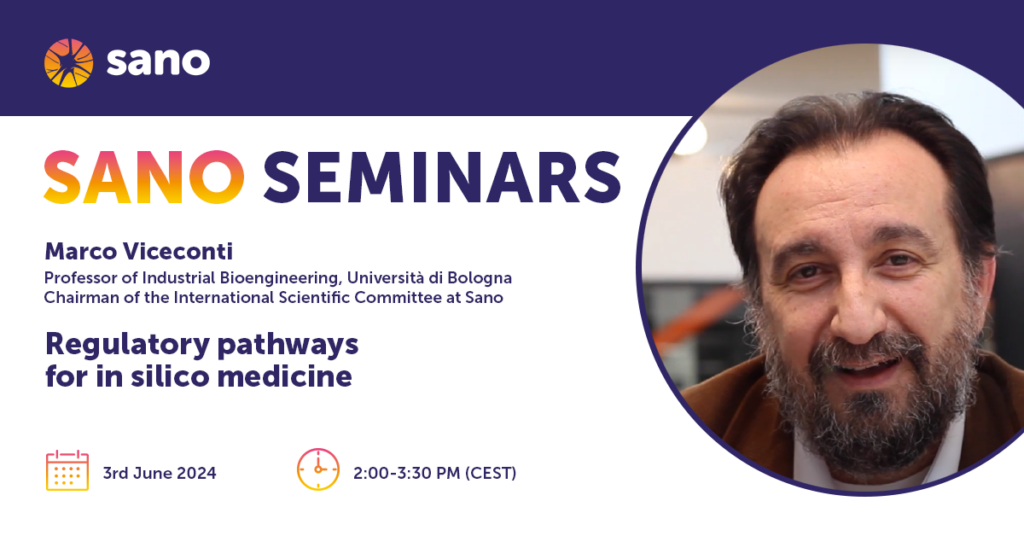136. Regulatory pathways for in silico medicine
Marco Viceconti – Chairman of the Sano International Scientific Committee Dipartimento di Ingegneria Industriale, Alma Mater Studiorum, Università di Bologna, Italy
Abstract
Before it can be sold in a country, any medical product must receive marketing authorisation from the authority competent for that country. This, in principle, also applies to predictive technologies, products that use subject-specific predictive models to absolve their medical function (commonly known as Digital Twins in Healthcare). However, the pathway to achieve marketing authorisation for such products is complex and still, to some extent, undefined. Even more complex is the case where the in silico methodology is not a medical product in itself but instead is used to assess the safety and/or efficacy of a medical product, whether a drug, a device, or others (what is commonly known as In Silico Trials). In this seminar, we explore the current options available for the regulatory certification of Digital Twins in Healthcare and the regulatory qualification of In Silico Trials in the two most important markets: the USA and the EU. We also provide a summary of the regulatory science that has been developed to assess the credibility of predictive models and highlight where there are still some missing gaps in such regulatory pathways.
About the author
Marco Viceconti is a full professor of industrial bioengineering in the Department of Industrial Engineering at the Alma Mater Studiorum – University of Bologna. Before that, he was at the University of Sheffield, UK, where he founded and led the prestigious Insigneo Institute for in silico Medicine. Prof Viceconti is an expert in In Silico Trials, the use of subject specific modelling to test new medical products. He is one of the key figures in the in silico medicine international community: he founded the VPH Institute, an international non-profit organisation that coordinates this research community, and drove the creation of the Avicenna Alliance, which represents the biomedical industry interests in this domain. He served as President of the European Society of Biomechanics and of the European Alliance for Medical and Biological Engineering and Science. He is currently one of 25 members of the World Council of Biomechanics. In 2018, he became a Fellow of the UK Royal Academy of Engineering; in 2021, he received the Huiskes Medal for Biomechanics. According to SCOPUS, he published 401 papers (H-index = 59).


